Vasodilation In Cannabis Explained

- 1. What is vasodilation?
- 2. What's the link between marijuana and vasodilation?
- 3. The reason behind the puffy red eyes
- 4. Can you stop vasodilation?
- 4. a. How to hide puffy red eyes
- 5. Side effects of vasodilation
- 6. The endocannabinoid system (ecs) explained
- 6. a. Other physiological changes that can be associated with cannabis
- 7. Cannabis-induced vasodilation aka red eyes faq
- 8. The bottom line
Anyone who's ever smoked weed, regularly or not, has noticed the typical symptoms of a cannabis high. These signs are already well-known, we see them being exaggerated in paintings, movies, and TV series all the time. From a dry mouth, known as cottonmouth, to feeling giggly, the side effects of consuming marijuana can be quite evident. However, there is one special reaction to smoking cannabis which is the biggest tell-tale sign that a person is under the effects.
"The eyes can speak louder than words."
Never has a saying made more sense, the most evident demonstration that a person is high on weed is in their eyes, their puffy, bloodshot red, baked eyes. What's the reason behind the puffy red eyes caused by marijuana consumption? It's due to a phenomenon called vasodilation. Let's find out what vasodilation is and what are its effects.
1. What Is Vasodilation?
Vasodilation isn't a mechanism exclusive of cannabis consumption, but it happens indeed when you use the substance.
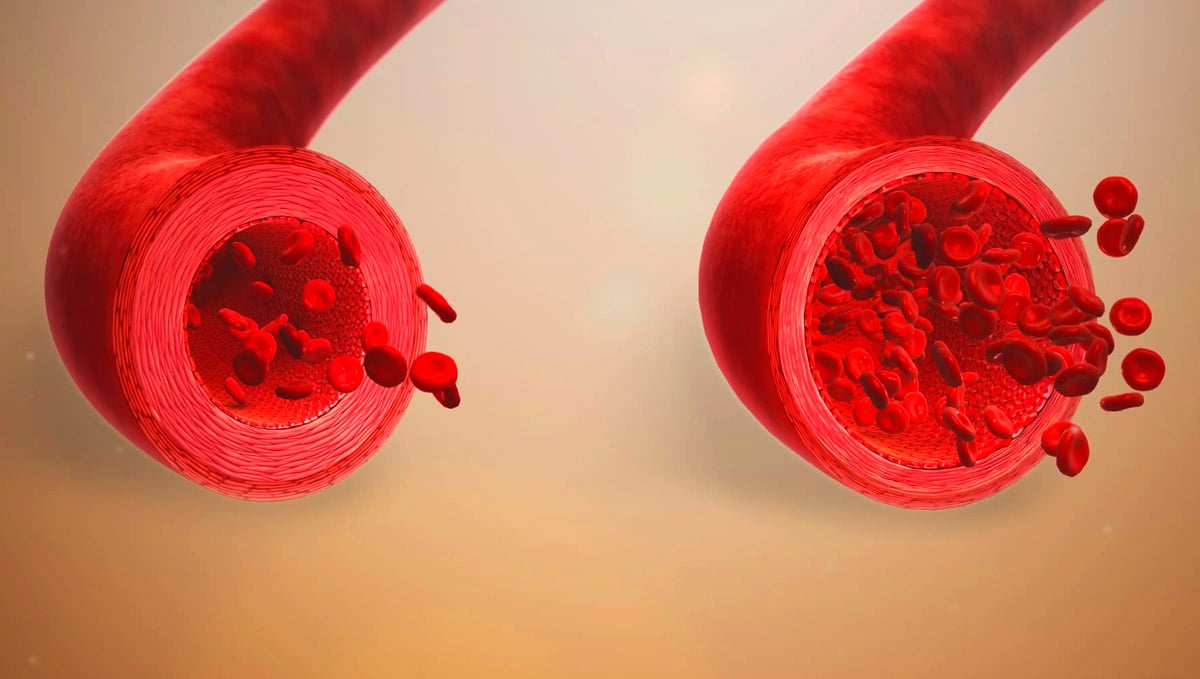
In medical terms, vasodilation is what takes place when smooth muscles situated in the walls of our arteries or larger veins relax, resulting in the widening, or dilation, of the blood vessels. This opening of the blood vessels leads to faster blood flow through the veins, and a decrease in blood pressure as well. Some substances and food sources that cause vasodilation include:
| Substance | Sources |
|---|---|
| Nitric oxide | Beets, garlic, dark chocolate, leafy greens, meat, nuts and seeds, citrus fruits, and more. |
| Carbon dioxide | The atmosphere. |
| Acetylcholine | Beef, egg, soybeans, fish, quinoa, milk, vanilla yogurt, broccoli, brussels sprouts, and more. |
| Prostaglandins | Bananas, sunflower seeds, ginger, pineapple, |
| Histamine | Alcohol, bananas, tomato, wheat germ, papaya, chocolate, beans, citrus fruits nuts, and more. |
2. What's The Link Between Marijuana and Vasodilation?
The famous cannabinoid present in weed buds, THC, or tetrahydrocannabinol, is known to mimic the effects of anandamide. Anandamide is a fatty acid neurotransmitter that participates in the regulation of pain, appetite and fertility, and the neural generation of motivation and pleasure.1 Just like most of marijuana's cannabinoids, this anandamide lipid mediator is synthesized by the CB1 receptors in the endocannabinoid, taking part in memory management, higher thought processes, and movement control.
Anandamide, and therefore also THC which mimics this fatty acid, is a vasodilation promoter, decreasing blood pressure and heart rate. But how exactly is it that blood pressure lowers as blood vessels widen? Well, it makes sense. Imagine if you had a hosepipe with running water. When you put pressure on the edge, making the hole smaller, the water runs typically faster, coming out with more pressure. This would be the high blood pressure state in our veins, running at a fast pace.
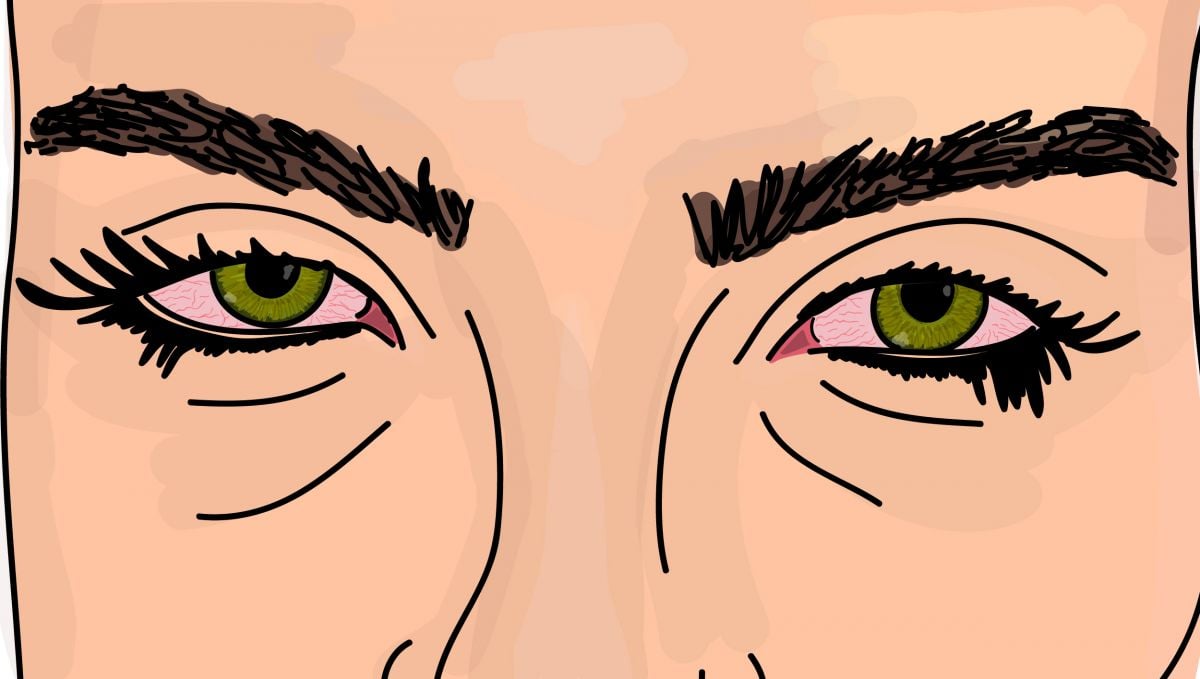
When you let go of the hose's edge, letting the hole go back to its previous form, water won't be running as powerfully as before. This would make the state of vasodilation in our veins when they are under the effects of marijuana. Blood pressure lowers because the volume is inversely proportional to pressure, as the 'hose' or veins widen, the volume of liquid that can be held in the 'tube' increases too, so the water or blood pressure is dropped.
3. The Reason Behind The Puffy Red Eyes
Anyone can experience red eyes for many different reasons, and smoking marijuana could well be one of those. Puffy red eyes are a natural reaction of our bodies' cardiovascular system under the influence of THC. When a person smokes, vapes, or eats cannabis edibles a two-step process takes place. Right after the substances have reached the endocannabinoid system, a short increase in the heart rate and blood pressure takes place, which is the opposite process of vasodilation, known as vasoconstriction.
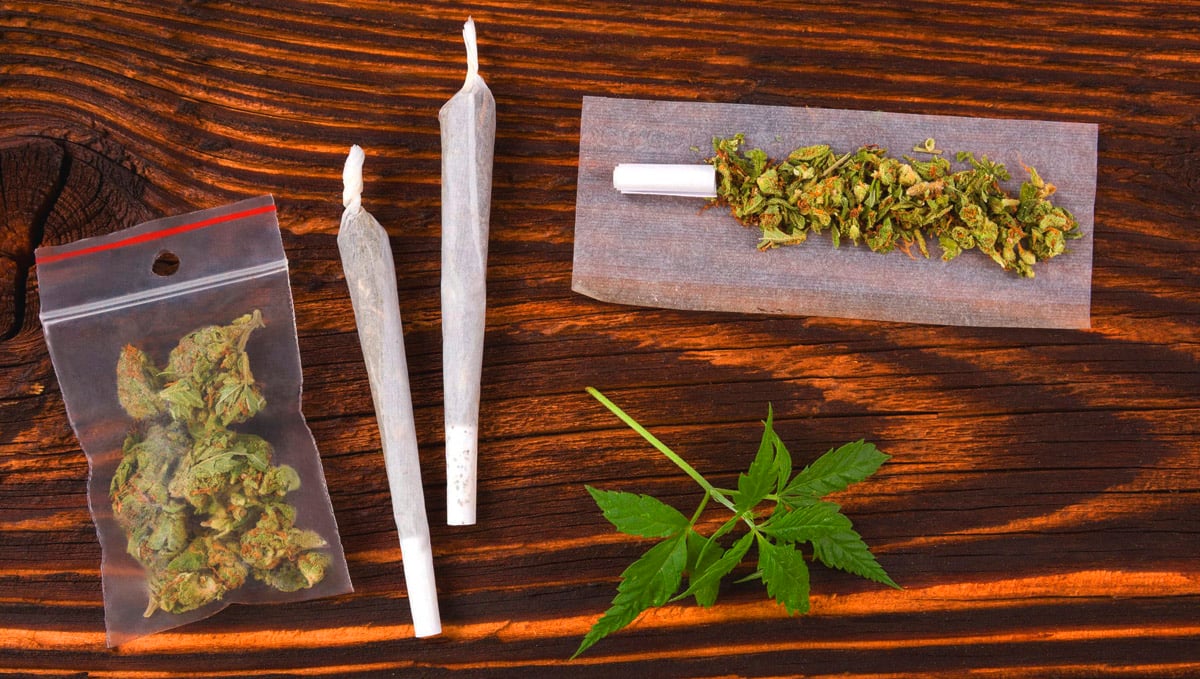
Briefly after, the exact opposite happens, the heart rate drops, and our veins expand, or vasodilate. Through the vasodilation of our blood vessels and capillaries, as we mentioned, the tiny muscles around the veins relax, allowing blood to travel through more freely. Since our eyes are structured with big amounts of small blood vessels, as they expand they become more visible, turning our eyes bloodshot red, making the fact that you're high on weed unmaskable.
4. Can You Stop Vasodilation?
If you still need to mask the fact that you are a marijuana user then what you are most likely wondering is if you can prevent vasodilation from happening. In the first instance, the answer would be no, you can't stop vasodilation from occurring when you consume cannabis. This is because vasodilation is a mechanism that takes place at a subconscious level, therefore we have no capacity to control either the vasodilation or vasoconstriction processes.
How To Hide Puffy Red Eyes
Given vasodilation is an autonomous process we can't precisely prevent, what we can actually do is find remedies for it. There are in fact a couple of known remedies that work effectively in getting rid of red, bloodshot eyes, such as:
- Using allergy eye drops;
- Using artificial teardrops;
- Chucking on a couple of sunglasses.
When it comes to eye drops, you have two options: allergy drops and artificial tears. The first is more efficient in handling eye redness, given it has a complex chemical structure focused mainly on alleviating the symptoms of allergies, which include eye discomfort, itchiness, and redness.
Artificial teardrops, on the other hand, aren't as effective as allergy eye drops but they can help too. These drops are easy to get, you can purchase them as an over-the-counter medication at the nearest pharmacy. Originally they are intended to treat eye dryness, but they can aid with the redness too.
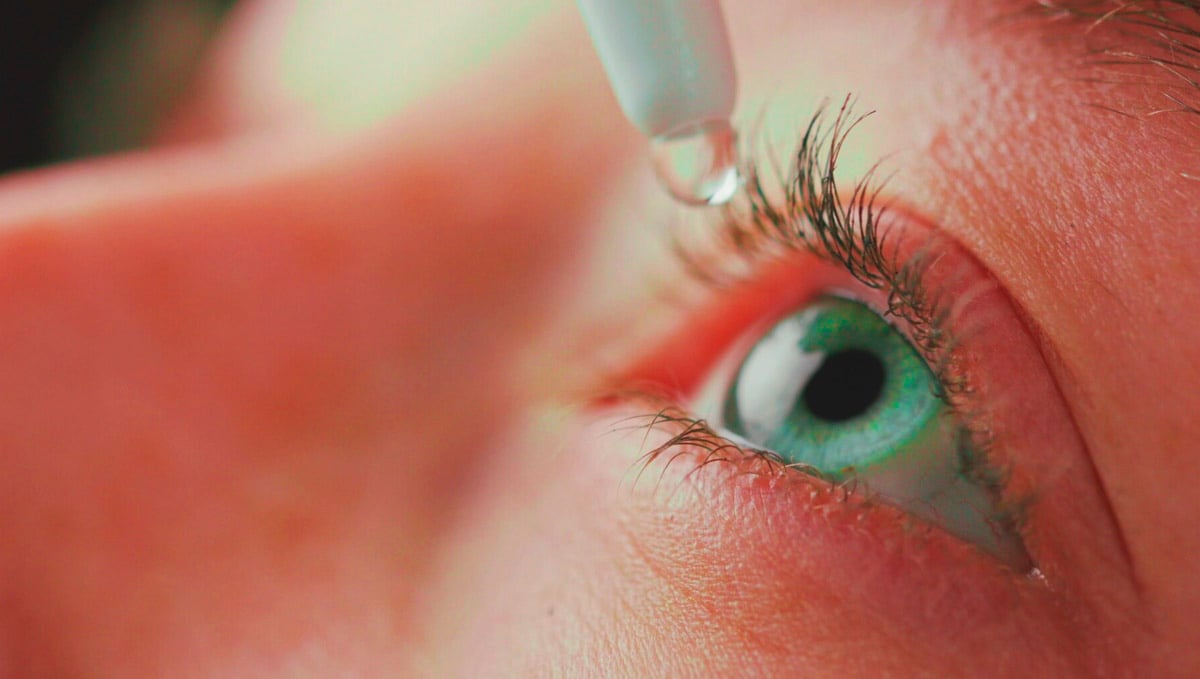
Between allergy drops and artificial tears, the first one isn't too recommended for regular use since they can harm your vision in the long run, so if you know you're going to give a strong use to these red-eyes remedy then we suggest you should rather use the artificial teardrops. Lastly, if you're not much into using eye drops, then perhaps the easiest go-to solution for hiding your bloodshot eyes are sunglasses. It's easy, simple, and fast, chuck your glasses on and relax in your high. However, take note that these are only daytime alternatives unless you want to be that guy wearing glasses at night, and ruin your eyesight while you're at it.
5. Side Effects Of Vasodilation
The effects of vasodilation in the body can be both healthy and bad for you, depending on the vasodilation levels and each person's health condition. For example, as a vasodilator, cannabis' THC is also known for relieving headaches and migraines.2 If your myth-buster alarm just went off, we get it, and we're impressed with your knowledge. It wouldn't make that much sense to state that a lowered blood pressure could relieve a headache since slow blood flow in the brain causes a decreased neural aerobic respiration, which is a normal cause of headaches.
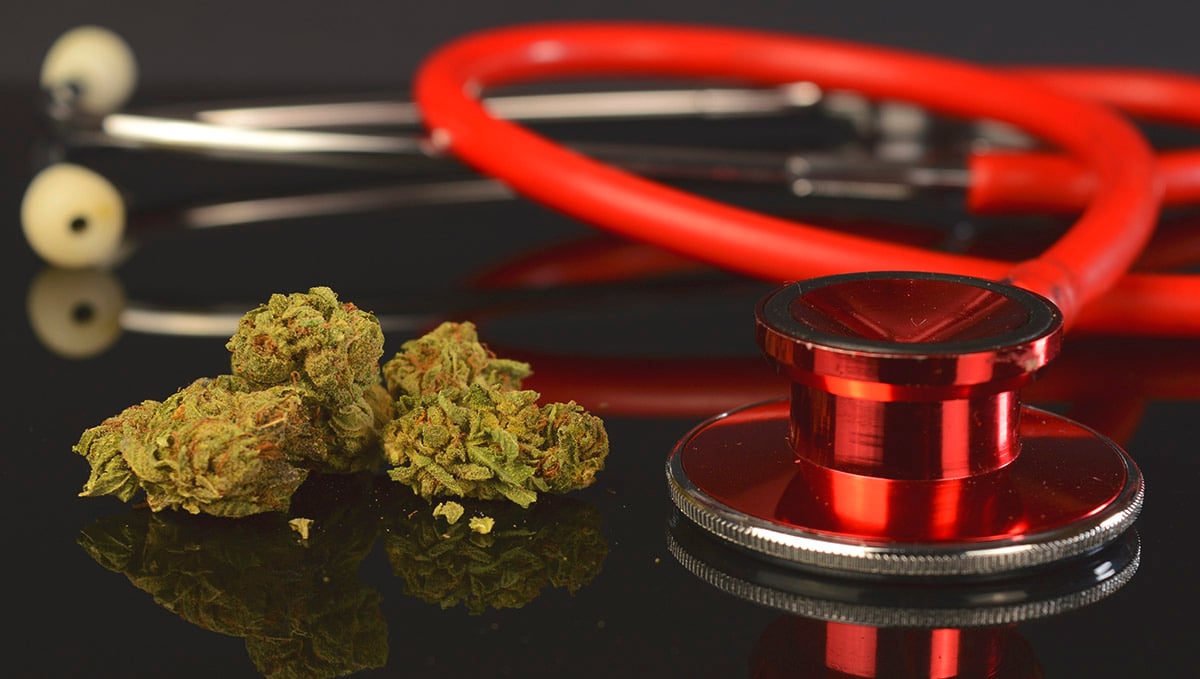
Nevertheless, before you bust this myth, you should keep in mind that one of the main activities of THC is acting upon the endocannabinoid system's receptors, which, among other duties, are in charge of pleasure. This way, the effects of THC binding with the CB1 receptors end up outweighing the slightly reduced blood flow and achieving therefore to counteract migraines and headaches. Since one of the main effects of vasodilation is decreasing blood pressure, cannabis could be promising for treating cardiovascular disorders, such as stroke, atherosclerosis, restenosis, MI, and heart failure. However, more research yet needs to be done on this aspect.3
6. The Endocannabinoid System (ECS) Explained
We have briefly mentioned the endocannabinoid system throughout this blog post, but we haven't really explained exactly what it is, or the functions it serves. The ECS is a complex network of cannabinoid receptors throughout the body that plays a vital role in both the central nervous system and the immune system, and also helps to regulate bodily functions such as appetite, memory, mood, bone growth and density, inflammation response, liver function, metabolism, muscle growth, sleep, and pain regulation.
The ECS is made up of two main types of cannabinoid receptors: CB1 and CB2. CB1 receptors are found exclusively throughout the nervous system and play an essential role in how nerves communicate with one another. They also play a major role in regulating neurotransmitters such as serotonin, dopamine, and glutamate. When CB1 receptors are activated, these neurotransmitters are slowly released and help to promote a feeling of relaxation and well-being.
CB2 receptors, on the other hand, are found almost exclusively in the immune system and help to regulate inflammation responses. The activation of CB2 receptors has been linked with a number of potential health benefits such as reducing inflammation, relieving pain, and reducing nausea. When we consume cannabis, the cannabinoids in the plant bind to these receptors just like our own naturally produced endocannabinoids. This helps to stimulate the ECS, which then helps to promote homeostasis and regulate the body’s functions. THC, the cannabinoid found in the highest concentrations in cannabis, and the main chemical responsible for producing the psychoactive effect in humans. It interacts with the CB1 receptor and can have a wide range of effects on the body, from increased appetite to pain relief to relaxation.
When THC is used in excess for long periods, the receptor becomes flooded which leads to a more muted response. This is why it is important to use cannabis responsibly and in moderation, and to take regular tolerance breaks if you do choose to consume frequently. CBD (the second most frequently found cannabinoid in weed), on the other hand, is non-psychoactive and does not bind directly to the CB1 receptor. Instead, it acts on both the CB1 and CB2 receptors indirectly by blocking the activity of an enzyme called FAAH, which breaks down our natural endocannabinoids and prevents them from activating their respective receptors.
By blocking the action of this enzyme, CBD helps to increase levels of anandamide, our body’s own naturally produced endocannabinoid. This is why CBD is often used to treat conditions such as anxiety, depression, and chronic pain, as it helps to boost natural endocannabinoid levels in the body and promote overall homeostasis. CBN, the new kid on the block, also interacts mostly with the CB2 receptor. It has been found to be an excellent sleep aid and can help to reduce inflammation as well.
Other Physiological Changes That Can be Associated With Cannabis
So, there's the vasodilation that causes red eyes which is probably the most obvious physical change when smoking weed, but it is anything but the only one. Cannabis also causes a decrease in blood pressure and an increase in heart rate. It has been found to stimulate appetite, enhance sensory perception, and reduce nausea. Furthermore, cannabis has been found to have anti-inflammatory effects, though research is still ongoing in this area.
Increased Appetite
Every single person that has consumed cannabis will test to the fact that it can cause you to get particularly hungry, other known as getting a dose of the 'munchies'. This can be an issue if you are trying to cut a couple of pounds, as the yearning to chow down on the most delicious things in the fridge or pantry can be almost uncontrollable, especially if you smoke weed infrequently.
But it can also be a massive benefit for anyone battling hunger issues. This is the case for many medicinal marijuana users, with a bunch of medications and treatment protocols causing an unnatural dip in the desire to eat. Take chemotherapy as an example - nausea and fatigue that accompanies it often leaves patients with a severely diminished appetite. and the timing couldn't be worse, as the need to consume a varied, healthy diet is particularly important during cancer treatment. Cannabis is a great tool for restoring appetite in these cases and even has the added benefit of reducing nausea. If you are looking to battle the munchies without eating your body weight in Hersheys or Auntie Annie's Pretzels, grab a piece of fruit. The high, natural levels of fructose will help to control the cravings for sugary foods.
Cotton Mouth
No matter the term you use (desert mouth, dry mouth, cotton mouth), the effect is the same - you can't seem to produce enough saliva. Cannabis has a particularly strong ability to cause this sensation, and that is because the receptors in our salivary glands are especially sensitive to the plant’s compounds.
This can be an annoying side effect, but it can be combatted with simple preventative measures. Staying hydrated and avoiding tobacco use while consuming cannabis will make a big difference, as well as grabbing a stick of chewing gum. This will help to stimulate the production of saliva, on top of freshening up your breath.
Headaches
As we mentioned earlier, cannabis can cause your blood pressure to rise depending on your individual reaction. This is particularly likely to occur when consuming large amounts, as well as with high-THC strains - something that many new cannabis users are guilty of accidentally falling into.
This change in blood pressure can lead to a sharp headache that is often accompanied by dizziness and/or light-headedness. The best way to avoid this experience is to consume cannabis in moderation. Even if you are experienced, your tolerance levels can change over time, particularly if you take a break from using cannabis. Start by taking small hits and see how your body responds from there. Again, hydration is absolutely key. Try to drink a good few glasses of water (or another hydrating liquid) before, during, and after you smoke, vape, or eat your weedy treats. This will help to reduce the severity of many of these negative side effects, and you'll feel better once you come out of the heady haze.
7. Cannabis-Induced Vasodilation aka Red Eyes FAQ
Is There Any Way to Prevent Vasodilation When Consuming Weed?
No, unfortunately not. The only way to reduce the chances of heavy, red eyes is to consume low percentage THC weed. If you are used to smoking cannabis that contains high levels of THC then you will be used to those red eyes that come with it, but if you switch to a strain that has less than 5% THC then you may very well see a huge difference in the amount of redness your eyes display. The trade-off is you won’t get as strong of a psychoactive effect.
Will Drinking Water Reduce my Eyes Redness?
While a high level of dehydration may increase the levels of redness that your eyes display when smoking weed, drinking a bunch of water will not clear them up once the redness has set in. It may reduce the redness slightly, and will definitely help with the cottonmouth, but it’s not a surefire way to clear red eyes, unfortunately.
Do Edibles Cause the Same Level of Vasodilation?
They sure do. It’s not the delivery method but the level of THC that decides how red your eyes will go. No matter if you smoke, vape, or eat an edible - your eyes will go red from consuming weed.
Does CBD Cause Vasodilation?
Nope, while CBD is a cannabinoid just like THC, and offers many of the same benefits - it does not cause vasodilation in the same way as THC. If you are looking to use weed for its medical benefits and not for its psychoactive qualities and want to skip the red eyes you should look for a pure CBD option.
Is There Any Way to Reduce the Redness Without Using Eye Drops?
Sure there is. While eye drops containing tetryzoline are by far the most effective way of clearing up any eye redness, not everyone wants to use them. Stimulants like caffeine can help induce vasoconstriction, so a strong cup of coffee might be your first best option. High-percentage cocoa chocolate can also have the same effect and may help ease any munchies you may be feeling. Splashing your face with very cold water can also help, as can placing green tea bags on the eyes for 15 minutes or so. But really the only surefire way to clear the redness quickly is by using eye drops.
How Long Does It Take for Eye Redness to Naturally Clear?
There is really no one straight answer to this question. It all depends on the strength of the weed and your own natural physiology. But, as a general rule of thumb, you can expect your eyes to return to their normal state after about 2 to 4 hours.
8. The Bottom Line
If you've ever noticed your eyes were red like hell after you smoked a joint or hit your bong, there is nothing you should worry about. In fact, exhale with ease, because this means your body is running smoothly. Puffy red eyes are meant to happen when you use cannabis, therefore when you don't experience this is when you should get worried. For now, enjoy your baked face and learn how to mask your red eyes from those who aren't supposed to notice you are higher than the clouds.
MEDICAL DISCLAIMER
This content is for educational purposes only. The information provided is derived from research gathered from external sources.
EXTERNAL REFERENCES
- "The effects of Δ9-tetrahydrocannabinol in rat mesenteric vasculature, and its interactions with the endocannabinoid anandamide" Saoirse E. O'Sullivan, David A. Kendall, and Michael D. Randall. June 2005.
- "The Use of Cannabis for Headache Disorders" Bryson C. Lochte, Alexander Beletsky, Nebiyou K. Samuel, and Igor Grant. April 2017.
- "Role of cannabis in cardiovascular disorders" Hemant Goyal, Hamza H. Awad, and Jalal K. Ghali. July 2017.
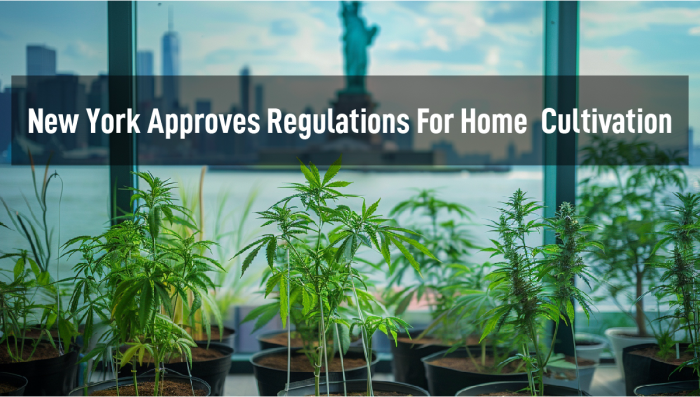







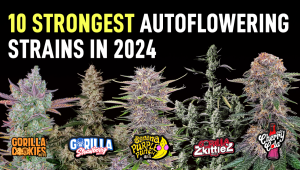
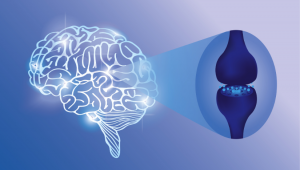
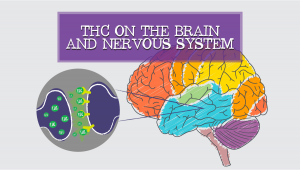


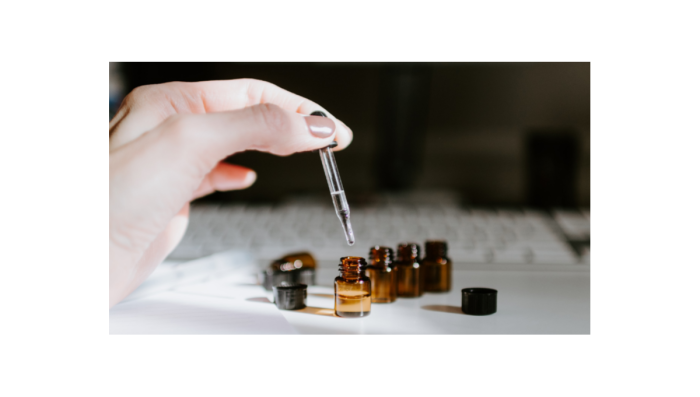
Comments